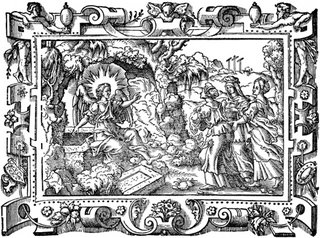Preaching Easter.

From the Archbishop of Canterbury's Easter Sermon:
Here's the whole thing."For the Church does not exist just to transmit a message across the centuries through a duly constituted hierarchy that arbitrarily lays down what people must believe; it exists so that people in this and every century may encounter Jesus of Nazareth as a living contemporary. This sacrament of Holy Communion that we gather to perform here is not the memorial of a dead leader, conducted by one of his duly authorised successors who controls access to his legacy; it is an event where we are invited to meet the living Jesus as surely as did his disciples on the first Easter Day. And the Bible is not the authorised code of a society managed by priests and preachers for their private purposes, but the set of human words through which the call of God is still uniquely immediate to human beings today, human words with divine energy behind them. Easter should be the moment to recover each year that sense of being contemporary with God’s action in Jesus. Everything the church does – celebrating Holy Communion, reading the Bible, ordaining priests or archbishops – is meant to be in the service of this contemporary encounter. It all ought to be transparent to Jesus, not holding back or veiling his presence."
From Benedict XVI's Easter sermon:
"“He has risen, he is not here.” When Jesus spoke for the first time to the disciples about the Cross and the Resurrection, as they were coming down from the Mount of the Transfiguration, they questioned what “rising from the dead” meant (Mk 9:10). At Easter we rejoice because Christ did not remain in the tomb, his body did not see corruption; he belongs to the world of the living, not to the world of the dead; we rejoice because he is the Alpha and also the Omega, as we proclaim in the rite of the Paschal Candle; he lives not only yesterday, but today and for eternity (cf. Heb 13:8). But somehow the Resurrection is situated so far beyond our horizon, so far outside all our experience that, returning to ourselves, we find ourselves continuing the argument of the disciples: Of what exactly does this “rising” consist? What does it mean for us, for the whole world and the whole of history? A German theologian once said ironically that the miracle of a corpse returning to life - if it really happened, which he did not actually believe - would be ultimately irrelevant precisely because it would not concern us. In fact, if it were simply that somebody was once brought back to life, and no more than that, in what way should this concern us? But the point is that Christ’s Resurrection is something more, something different. If we may borrow the language of the theory of evolution, it is the greatest “mutation”, absolutely the most crucial leap into a totally new dimension that there has ever been in the long history of life and its development: a leap into a completely new order which does concern us, and concerns the whole of history."
Here's the whole thing.

0 Comments:
Post a Comment
<< Home